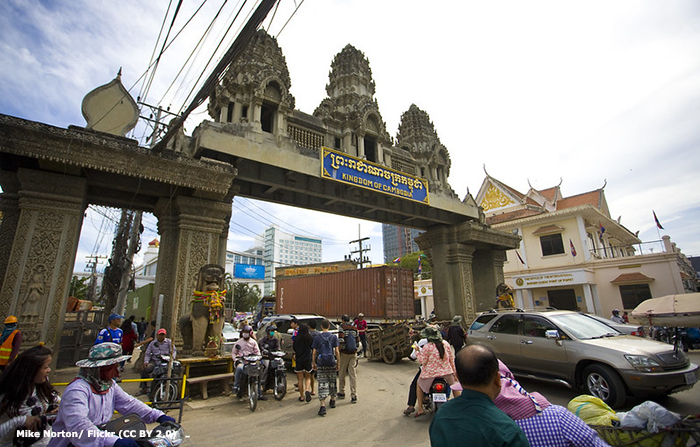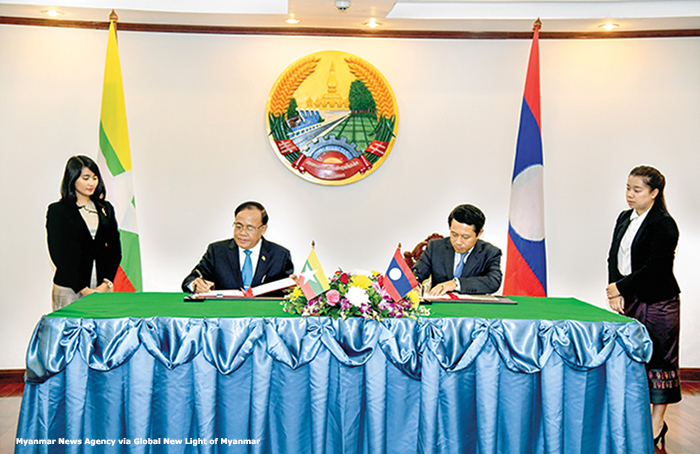Cambodia Plans Improvement of Thailand and Viet Nam Border Gate Facilities
A press release from the Royal Government of Cambodia’s Ministry of Economy and Finance announced plans to improve facilities at border gates with Thailand and Viet Nam.
Cambodia’s border crossing points with Thailand and Vietnam are crowded with traffic of cross-border transport and tourists. The country wants to develop the necessary infrastructure to manage this traffic flow to ease cross-border transport and boost trade activities.
The Economic and Financial Policy Committee, chaired by Deputy Prime Minister Aun Pornmoniroth, approved the proposal.


